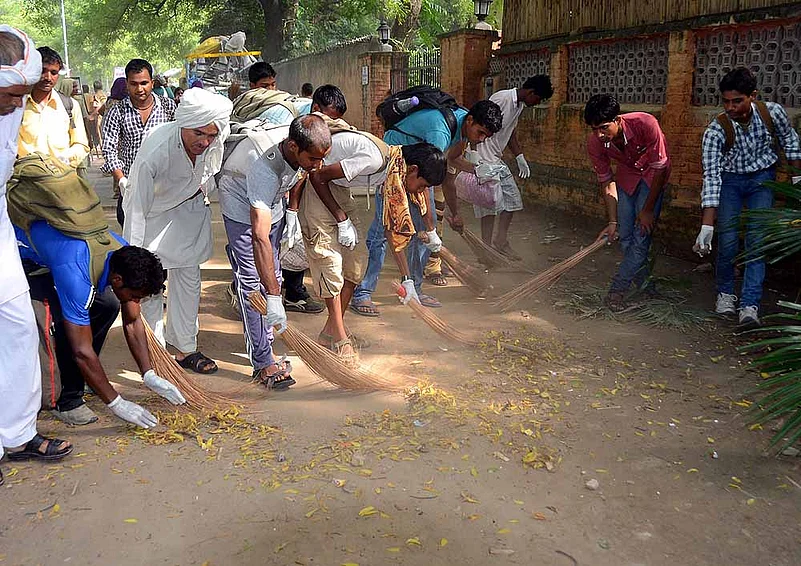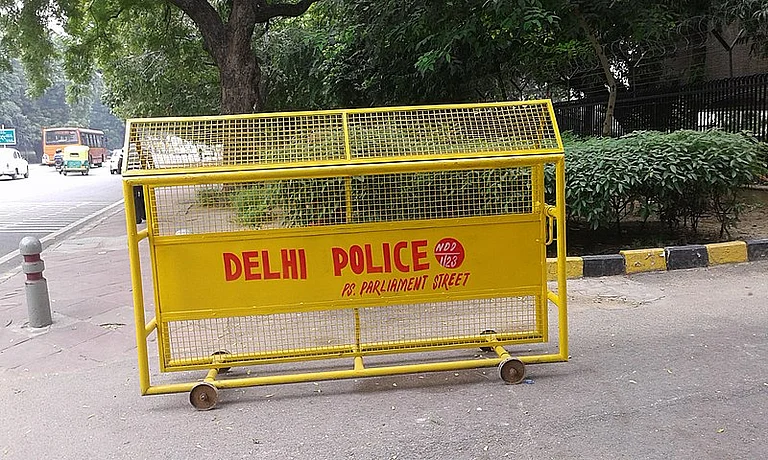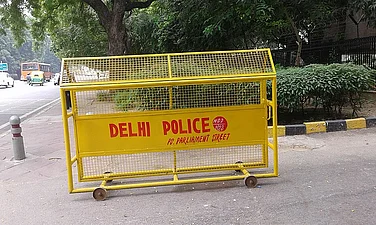They may not quite be J.K. Rowling’s Nimbus 2000s, but the humble broomstick is causing quite a stir in the national capital. Especially since the Election Commission allowed the Aam Aadmi Party (AAP) to use the jhadoo as its election symbol and posters of a broom-wielding Arvind Kejriwal promising sweeping changes have been staring at us from the back of Delhi autorickshaws.
It was flustered Delhi policemen who had to stop a stream of vehicles carrying people with broomsticks making their way towards Delhi. They had no information about any political rally of such magnitude. But this was no Kejriwal campaign, the broom-waving people turned out to be only volunteers of the Dera Sacha Sauda, a socio-religious group from Sirsa in Haryana, who were converging at Jantar Mantar for a cleanliness drive.
The last time the group had arranged such a cleanliness drive in the capital was in September 2011, and it was a much smoother affair. But with AAP having adopted the symbol as its own, broomstick sensitivity has grown so much that permission for the drive was given ‘orally’ this time and that too barely 48 hours before the event. Some of the volunteers allege that the police was deliberately kept in the dark and that the administration went into an overdrive to ensure the event wasn’t covered even by the local press.
Ironically, the Dera is believed to be partial to the Congress, though it claims to be apolitical. Political parties in Punjab and Haryana, however, woo them before every state election.

Delhi chief minister Sheila Dikshit is said to have personally cleared the drive this week. But the Dera claims that the Delhi government is reluctant to take it up on its offer of cleaning the Yamuna and dig a parallel channel for the sewers that empty into it at present. The Delhi administration has been sitting over the proposal for a long time, it says. When contacted, the group’s spokesman, Dr Aditya Insaan, told Outlook, “It is wrong to attribute a political motive to our ‘Ho prithvi saaf/Mite rog abhishap’ campaign, which has been conducted in over 20 cities since 2011. What’s more, we have been doing this long before AAP was formed.”
Dr Pradeep Sharma, an ophthalmologist at a leading hospital, says he joined the drive both as a devotee and as a medical professional who is saddened by the lack of community hygiene. “We lost a doctor colleague to dengue this week,” he says, “but I see no public awareness and, I am sorry to say, no attempt in the media either to spread it.”
The devotees of the Dera—it claims several million of them—insist that the drive is neither a gimmick nor a publicity stunt. “Had it been a stunt,” says an indignant scientist who did not want to be named, “five lakh people would not have turned up to clean the Ganga canal and fish out 3,000 metric tonnes of sewage.”
The group, in fact, claims that it was its 2011 drive, which involved cleaning litter, filth, solid waste, puddles and toilets, that helped bring the number of dengue cases down from 70,000 to 7,000 in and around Delhi. Dr Sanjukta Sengupta, a microbiologist, told Outlook, “I have been helping them in their outreach programme since 1993, but medicine, vaccination etc are expensive. In any case, a majority of diseases happen due to poor sanitation and hygiene and health programmes rarely reach out to the bottom of the pyramid.”
The group’s spokesmen, however, concede that one of the triggers for the drive were the comments of overseas visitors, who spoke disparagingly of the squalor they saw around them.


























